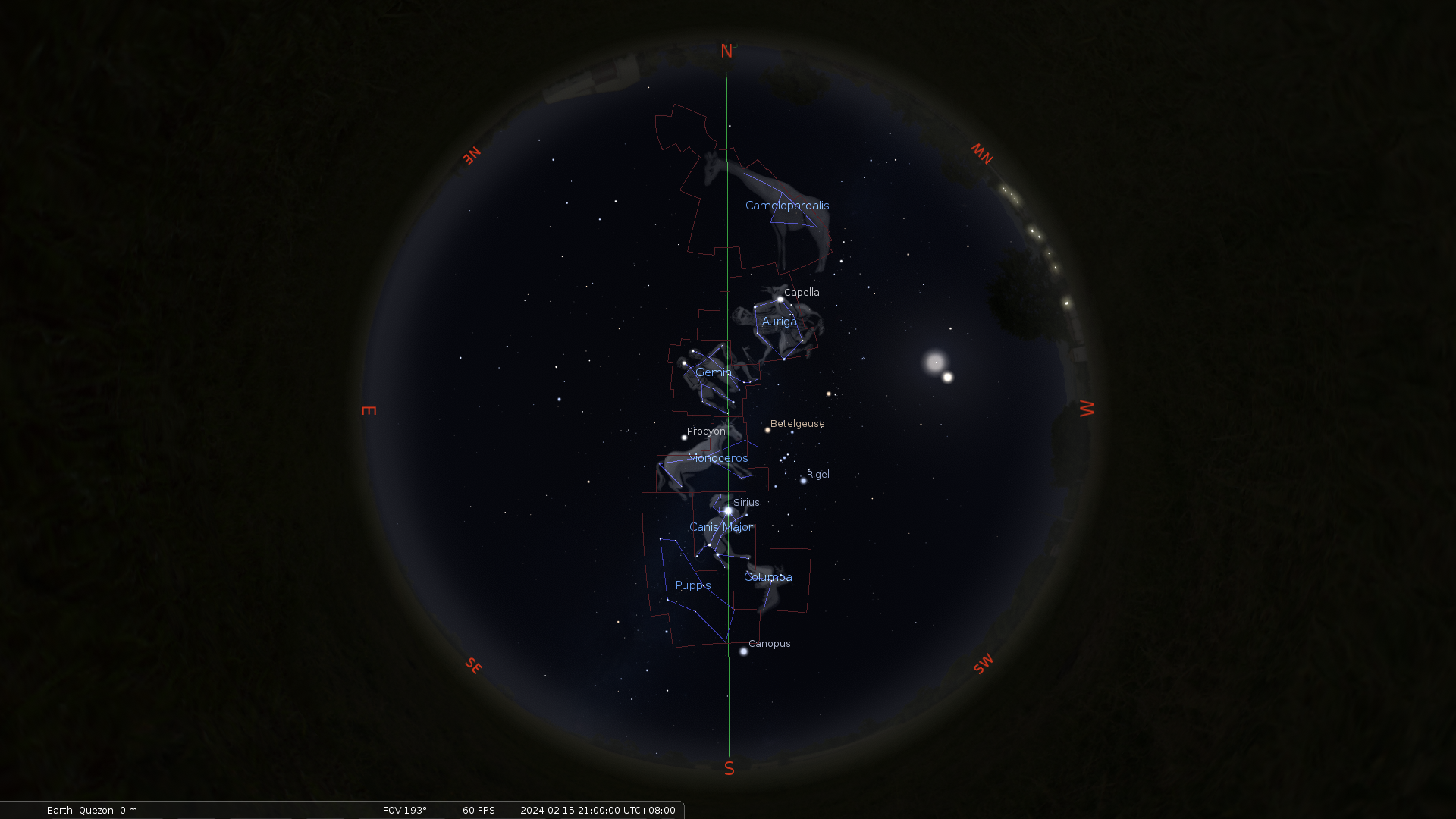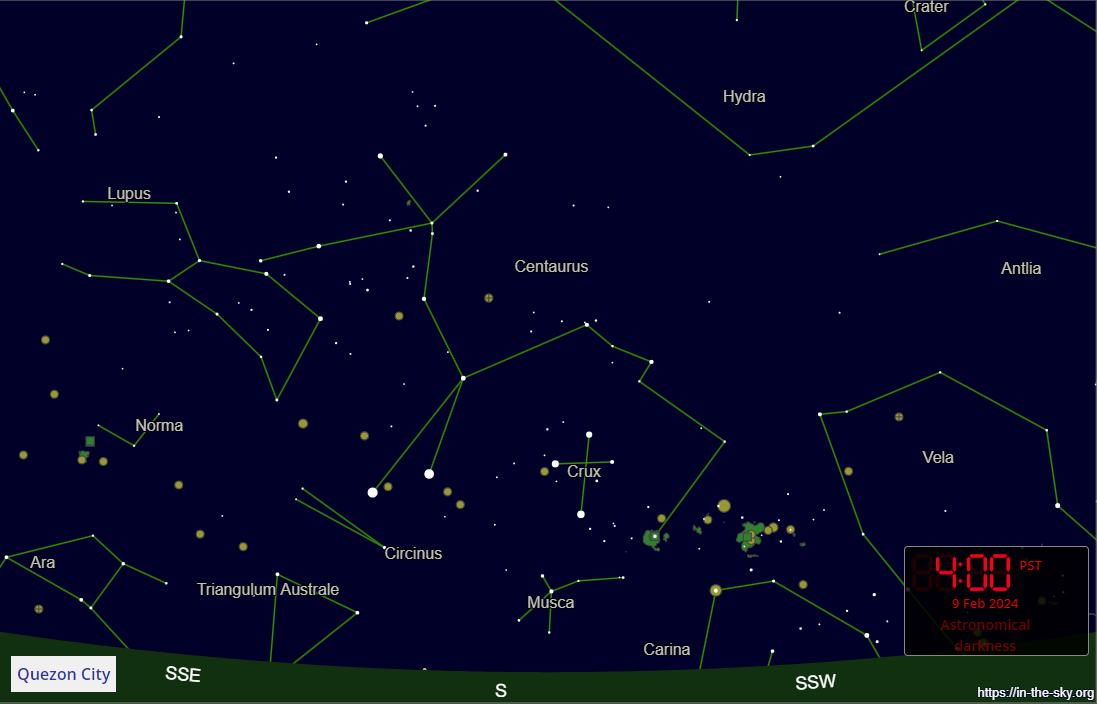February may be the "best" month to gaze at the wonders of the night sky, as the prominent constellations will be recognizable.
The Philippine Atmospheric, Geophysical, and Astronomical Services Administration's (PAGASA) astronomical diary for the month highlighted that there will be a "particular focus" on the northern constellations, including Auriga, Camelopardalis, Gemini, and Monoceros, while the southern hemisphere's prominent constellations to be seen include Canis Major, Columba, and Puppis.
"February stands out as the ideal month to marvel at the beauty of the night sky," it said.
PAGASA noted the prominent constellations in February will be "positioned directly overhead" at 9 p.m. on Feb. 15.

Meteor showers
PAGASA the α-Centaurid meteor shower has been active since Jan. 31 to Feb. 20.
It said the meteor shower will peak on Feb. 9 producing an estimated nominal rate of six meteors per hour.

"The shower will be visible from the time constellation Centaurus rises in the southeastern sky, which is around 12:23 a.m.," said PAGASA.
However, it said only one meteor per hour can be expected in Metro Manila during its peak, "as the radiant is on the lower portion of the sky."
PAGASA said the public can best view the meteor showers with the naked eye "when the radiant point is above the horizon."
It advised the public to look for a dark location away from the city lights and to make sure the sky is clear and moonless for the best viewing experience.
Meanwhile, PAGASA said it will spearhead the 31st celebration of the National Astronomy Week on Feb. 18 to 24 with the theme “Popularizing Astronomy in the Region through Science Education and Communication (PARSEC).”
Read: https://mb.com.ph/2024/1/18/pagasa-to-celebrate-astronomy-week-in-february